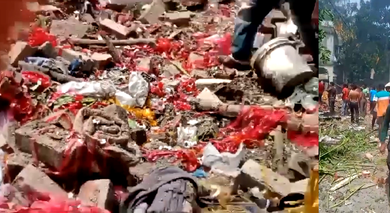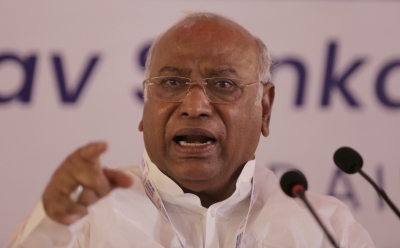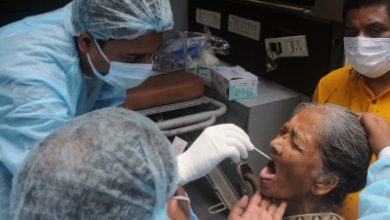
Guwahati, April 14 : Opposition in Assam has been sceptical about the delimitation of Assembly and Lok Sabha constituencies in the state since the draft of the exercise was first published by the Election Commission in June last year.
Congress, AIUDF, Trinamool Congress, and other opposition parties have claimed that the “ECI did a favour to the BJP in the whole exercise”, an allegation that has been strongly refuted by the ruling party.
The four Lok Sabha seats of upper Assam — Dibrugarh, Lakhimpur, Jorhat, and Tezpur (now Sonitpur) — were always dominated by the Hindu population. These were once the bastions of the Congress party. The political dynamics changed in 2014 when the BJP made serious inroads here and won these four parliamentary constituencies.
However, in Barpeta, Darang, Kaliabor, etc., constituencies, minority votes were the deciding factor, and Congress had an advantage in these seats even after the 2014 Lok Sabha polls.
Tarun Gogoi once represented Kaliabor Lok Sabha in Parliament. He won this seat thrice — 1991, 1998 and 1999. In 2001, Gogoi quit Lok Sabha after becoming the Chief Minister of Assam. His brother Dip Gogoi was given the Congress ticket in Kaliabor.
Dip Gogoi first won the Kaliabor seat in 2002 by-election and was again re-elected to Parliament from the same constituency in 2004 and 2009.
When Tarun Gogoi’s son Gaurav Gogoi was introduced to politics, he was nominated by the Congress party from Kaliabor in the 2014 Lok Sabha polls.
Gaurav Gogoi won in 2014 and 2019 general elections despite a strong wave of BJP in Assam.
Post-delimitation exercise, the Kaliabor seat ceased to exist, and a new constituency, Kaziranga, was formed. This seat is now dominated by Hindu voters, and minorities are no longer a big factor here. Assembly constituencies with a major Muslim population, like Ruaparihat, Samaguri, and Dhing, were scrapped from the Kaliabor Lok Sabha seat, and Hindu-populated areas were included here.
The changed dynamics of this Lok Sabha constituency have forced Gaurav Gogoi to change his seat, and he is contesting from Jorhat this time.
The BJP won the Darang Lok Sabha seat in 2019. However, a good number of Muslim population poses a challenge to the BJP here. The ECI-conducted delimitation exercise has included areas like the Jalukbari Assembly constituency within the parliamentary constituency where Chief Minister Himanta Biswa Sarma is an MLA.
In 2019, Congress won three Lok Sabha seats in Assam — Kaliabor, Nagaon, and Barpeta. However, the voter pattern of the Barpeta Lok Sabha seat was changed to a large extent in the delimitation exercise. A seat that was always dominated by the Muslim population, now Hindu votes will also play a major role in deciding the candidate’s fortune.
Abdul Khaleque, the incumbent Congress MP, refused to fight from the Barpeta Lok Sabha seat this time, and he insisted on a ticket from the Dhubri Lok Sabha seat.
Assam has more than 30 per cent of the Muslim population; however, the minority voters will be a deciding factor only in the three Lok Sabha seats — Dhubri, Nagaon, and Karimganj. That is why Chief Minister Himanta Biswa Sarma claimed at least six months ago that the BJP would win at least 11 out of the total 14 Lok Sabha seats in Assam.
Congress leaders have been alleging that the whole delimitation process was conducted with the motive of giving electoral benefits to the BJP. The ruling party leaders have argued that delimitation was an exercise conducted by the Election Commission and that the BJP had no role in this.
However, it is a fact that post-delimitation, opposition parties discovered that taking on the BJP in Assam has become an uphill task.






